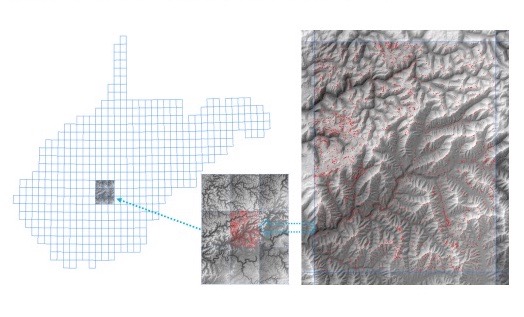
University of Arkansas doctoral student Chenggang Lai recently won the second place award in the Association of American Geographers Cyberinfrastructure Specialty Group's 2016 Robert Raskin Student Competition.
Lai, who is studying Computer Science and Computer Engineering with Miaoqing Huang through the College of Engineering, won for his paper, "Minimum Set of Viewpoints for Maximum Coverage Over Large Scale Digital Terrain Data."
His research has potential implications for a broad array of civil and military operations, said his co-adviser Xuan Shi.
"In this research, we developed a high-performance geocomputation solution to automatically derive a minimum set of control viewpoints to cover maximum terrain area for any given set of digital elevation model data," said Shi, assistant professor of geoinformatics in the J. William Fulbright College of Arts and Sciences. "Currently there is no software product available or capable of doing these kinds of analytics."
Shi said this is because this type of geocomputation needs lots of storage space and memory, and can be time consuming.
But ultimately, Shi said, Lai's research may be able to save the Federal Communications Commission and other telecommunication companies a lot of money by reducing the amount of FCC antennas needed to cover the same amount of terrain.
Lai's research was supported in part by Shi's National Science Foundation grant. Lai is working with Shi and Huang as a graduate assistant studying high performance geocomputation research.
Shi is principle investigator for the research, titled "Exploring Scalable Parallelism and Optimization of Spatiotemporal Computation over Beacon," for which he was awarded 10,000 node hours on the supercomputer Beacon — a cluster of Intel's latest Many-Integrated Cores hosted at the University of Tennessee-Knoxville. Lai's awarded project was implemented on Beacon.
Topics
Contacts
Xuan Shi, assistant professor in geoinformatics, Department of Geosciences
J. William Fulbright College of Arts and Sciences
479-575-7906, xuanshi@uark.edu
Andra Parrish Liwag, director of communications
J. William Fulbright College of Arts and Sciences
479-575-4393, liwag@uark.edu